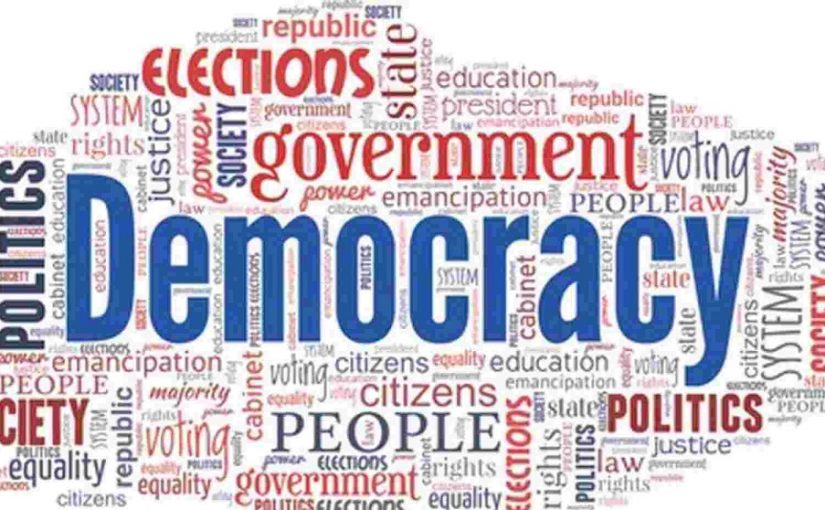By Aravind Bhatikar
February 24, 2024
REVIVAL OF HOPE!
JUST when India had almost lost hopes about the power of the Supreme Court to protect our democracy, a Bench of the Supreme Court headed by Chief Justice Chandrachud announced, with a confidence and boldness not seen in recent times, that the Electoral Bond Scheme was unconstitutional since the scheme violated the provisions of the Indian Constitution and the Right to Information Act (RTI). The Supreme Court directed the State Bank of India to release to the Central Election Commission all available information on Electoral Bonds by March 6, 2024 and directed the Central Election Commission to exhibit this information on its website by March 13, 2024.
The Electoral Bond Scheme was introduced as a part of the Money Bill in the budget of 2017-18. However, it was notified only on January 2, 2018. The scheme was introduced in Lok Sabha as a part of the Money Bill ostensibly to prevent its rejection by the Rajya Sabha where the BJP government did not have a majority.
The Reserve Bank of India and the Central Election Commission had opposed the scheme, primarily on grounds that this would enable “black” money to be converted into “white” and enable foreign funds of questionable origin to flow into Indian elections.
The government not only ignored the objections of the RBI and the Central Election Commission but carried out consequential amendments to other Acts to facilitate easy implementation of the scheme.
Hitherto, registered companies were allowed to donate up to seven-and-half percent of their average net profit for the previous three years. This provision in the Companies Act was removed, allowing companies to donate any amount to political parties without restriction and without the knowledge of either the shareholders or voters in general.
The scheme and the amendments were challenged in the Supreme Court in 2018 by the Association for Democratic Reforms (ADR), Common Cause and the Communist Party of India (Marxist). The Supreme Court might not have appreciated the urgency of the matter and the issue was put on shelf until November 2023. The hearing on the case was completed in November 2023 and the judgment was delivered about 3 months later, on February 15, 2024. Though justice was delayed, it was not denied. The “godi” media deliberately ignored the news and the content of the judgment, but the independent YouTube channels and sections of national print media hailed the judgment. The judgment has been viewed as a rude shock to the BJP and a welcome boost to free and fair Lok Sabha elections coming up.
The optimism regarding the judgment and its effects could prove to be unjustified.
As per the information available in public domain, the BJP had about Rs5,440 crore and the Congress Rs162 crore respectively in their bank accounts by the end of March 2023. It is also reported that more than 94 percent of electoral bonds were of the value of Rs1 crore each. The names of donors, political parties receiving the bonds, denomination of the bonds, etc, will be hopefully reported by the State Bank Of India by March 6 and be available to the public by March 13 on the websites of the Central Election Commission.
The Supreme Court has not stopped the political parties from using the above mentioned amount in their bank accounts. The BJP can use more than Rs5,400 crore for the 2024 Lok Sabha Election, even though a major part of this amount may have been contributed by companies through electoral bonds which now have been held as unconstitutional and hence illegal. To the extent that political parties use the unconstitutional funds for Lok Sabha elections, the judgment of the Supreme Court will prove to be ineffective in cleansing the Election process.
The Indian banking system has reportedly written off about Rs15 lakh crore of NPAs in the accounts of corporates. It will be a long time before a nexus is established between donations given by big corporates to the ruling party and the amount of NPAs in the account of the corporates written off by the SBI.
It remains to be seen whether the opposition parties succeed in building up a perception against BJP before the Lok Sabha election on the basis of the judgment on Electoral Bonds. It is extremely difficult, but not impossible.
Can WE, THE PEOPLE help to build up a correct perception on the issue?
THIRD TERM FOR MODI?
February 28, 2024
THE Supreme Court gave three weeks’ time to the SBI to forward to the Central Election Commission all available details on the Electoral Bonds. The Election Commission has been given time till March 13 to upload all these details on their website.
We are living in an age when our scientists remote-control the movement of spacecraft headed for the moon about 3,85,000 km away. This is an age when a private company in Israel has developed the Pegasus spyware to snoop on individual mobile phones thousands of kilometers away.
The common men in India, without much knowledge of the digital world, may wonder why the Supreme Court recently allowed three weeks to State Bank of India for transferring data on electoral bonds to the Election Commission. That data should be already available on SBI’s computers and the compilation and transfer of which should not at all take so much time. The more the delay in implementing directions of the Supreme Court, the less is the power of those directions to put Indian democracy back on track.
It is gratifying to note that the SBI computer system has not yet been hacked by expert hackers in Delhi or not corrupted by any political virus.
If a thief is arrested, tried and convicted for burglary, robbery of the stolen property, if recovered from the thief, has to be returned to the owner. Would it be correct, then, to say that the amount already collected by political parties through unconstitutional electoral bonds, should be returned to the donors? Has the Supreme Court given injunction to prevent the use of the amount already collected through electoral bonds by political parties? If not, should the Supreme Court now take judicial notice of the use of these funds by political parties and freeze such funds until a final decision is taken on their deployment. The Supreme Court judgment clearly points out that the ruling political party would be getting an unfair advantage over others through these electoral bonds.
As per the information available in public domain, the BJP had about Rs5,440 crore and the Congress Rs162 crore respectively in their bank accounts by March 2023. A substantial part of this amount might have been collected through the electoral bonds. What is the utility of the Supreme Court judgment on electoral bonds if ruling political parties at the Centre and in the states are allowed to use the funds collected through unconstitutional electoral bonds?
As Justice (Retd) Kurien Joseph observed recently in an address on Constitutional issues, we cannot expect the Supreme Court and the Judiciary to solve all the problems of our democracy. Unfortunately, media, the forth pillar of our democracy, which should help the civic society to evaluate and work towards improvement of the democratic process, has totally failed in its task. Ultimately, the battles of democracy have to be fought on streets, with or without help from the Judiciary or the media.
The Supreme Court judgment on electoral bonds may have come too late and may be too inadequate to correct the process of electoral funding.
The majority of experienced journalists and political analysts believe that the 2024 Lok Sabha election may be the last if Narendra Modi gets a third term as prime minister of India.
It is now or never! WE, THE PEOPLE must wake up and do our duty to protect our secular and federal Constitution. This is our last opportunity. Stop the exit of our democracy and the entry of dictatorship.

